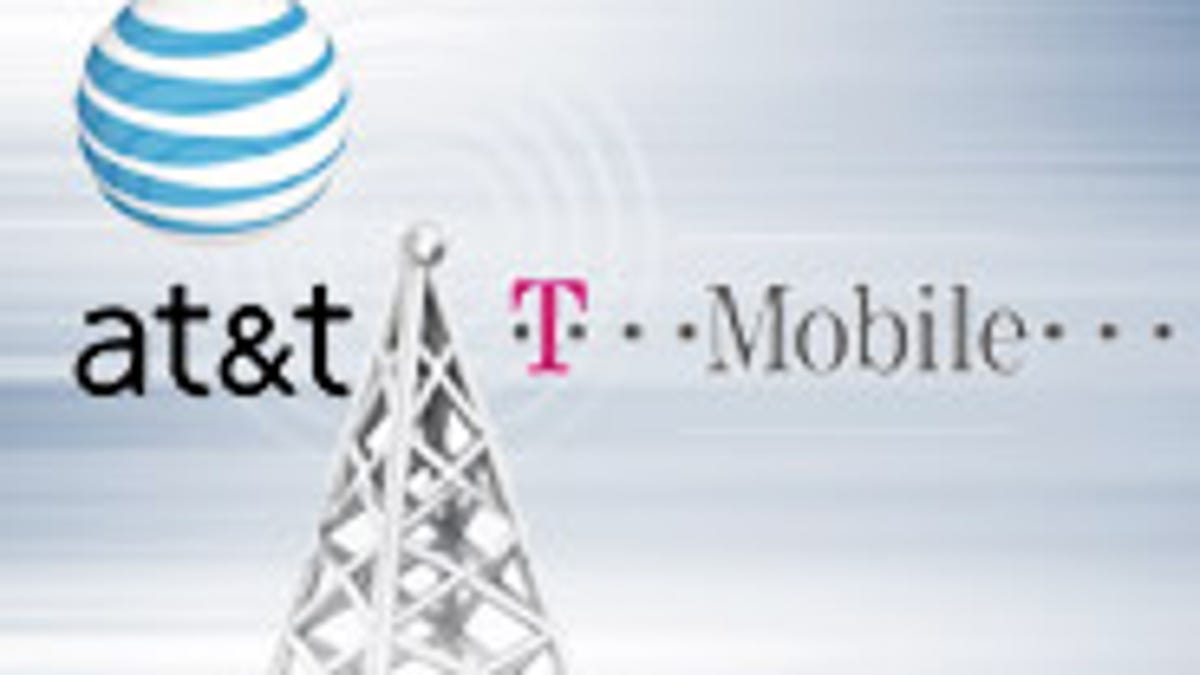AT&T files merger papers with FCC
AT&T filed official paperwork with the Federal Communications Commission that announces its intention to acquire T-Mobile and its spectrum licenses.

With a filing at the Federal Communications Commission (FCC) today, AT&T's proposed $39 billion acquisition of T-Mobile is now in the hands of federal regulators.
The paperwork, which spells out AT&T's intention to acquire T-Mobile's spectrum licenses, is the first official step in its quest to become the country's largest wireless carrier. AT&T also used the documents to argue why the deal is good for customers and the wireless industry as a whole.
"AT&T faces severe spectrum and capacity constraints and cannot simply wait for the next major auction to address them," the carrier said in a statement. "T-Mobile USA also faces spectrum exhaust in certain markets. If unaddressed, the network limitations and constraints confronting both of our companies would lead to more dropped and blocked calls, slower speeds, and access to fewer and less advanced technology platforms and applications."
By all accounts, the spectrum debate will take center stage during the proceedings. And in a 381-page executive summary of the FCC filings that it posted online (PDF), AT&T says it suffers more spectrum shortages than other carriers. "In this transaction, AT&T--an American company on the leading edge of mobile broadband innovation--is acquiring T-Mobile, a Deutsche Telekom subsidiary with declining market shares and no clear path to Long Term Evolution. This merger provides by far the surest, fastest, and most efficient solution to [the spectrum] challenge."
The redacted document goes on to detail other arguments, including the "staggering" data loads on AT&T's network because of smartphone use, the complementary nature of the two carriers' GSM networks, the enhancements to public safety that the merger can bring, and the robust competitive landscape of the wireless industry. "The U.S. wireless industry is one of the most fiercely competitive markets in the world and will remain so after this deal," the carrier said on its merger Web site. "This intense competition is only increasing with the build-out of new 4G networks and the emergence of new market entrants."
If the marriage is approved, the combined carrier would include an estimated 130 million subscribers, which would be far ahead of Verizon Wireless' 102 million customers and a giant leap beyond Sprint's 50 million subscribers. That point isn't lost on Sprint, which came out strongly against the merger only a week after it was announced on March 21.
"Today's filing only reinforces the significant risks presented by AT&T's proposed acquisition on the U.S. customer," Sprint Senior Vice President Vonya B. McCann wrote in a statement sent to reporters. "It is an indisputable fact that this takeover would create an entrenched duopoly with control of approximately 80 percent of wireless revenue. This kind of leverage could strangle competition and give AT&T the power to increase prices, threaten innovation critical to the industry, and eliminate American jobs."
McCann's comments are just the latest salvo in what is becoming a heated war of words between the two companies. After Sprint CEO Dan Hesse panned the merger last Friday while speaking in San Francisco, AT&T fired back that Hesse's comments were "self-serving" and that Sprint should spend its time "responding in the marketplace." Neither Verizon nor CTIA have taken a position on the merger, but Cellular South President Hu Meena said yesterday that his company "can find nothing good about" it.
As CNET's Maggie Reardon reported last month, there's question that the merger will face significant hurdles to get the nod from not only the FCC, but also the Department of Justice. And besides the FCC and the DOJ, the deal also will face scrutiny by attorney generals individual states.
It's a process that could take months starting with the FCC conducting an initial review before asking for public comment. Congress also will take up the merger on May 11 when the Antitrust, Competition Policy, and Consumer Rights Subcommittee of the Senate Judiciary Commit is scheduled to hold a hearing.

